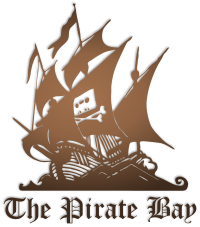
- Image via Wikipedia
Earlier this month, a Swedish court ruled against Pirate Bay, a site that assists in file sharing of movies, music, games, and other media.
Unlike earlier generations of file sharing (such as Napster), which store files or allow them to pass through their servers, Pirate Bay relies on BitTorrent technology, providing information on where files can be found on other computers.
While Pirate Bay was not charged for copyright infringement, its owners and operators were charged essentially with aiding and abetting wholesale intellectual property theft. For this, they were sentenced to one year in jail and the equivalent of $3.6 million in damages. The news of the lawsuit has been covered extensively by the NY Times, NPR, Wired, and On the Media. The Guardian includes an interactive time series of events, and Ars Technica provides a nice analysis of the finding.
We often assume that the strength of intellectual property rights are inversely related to the costs of copying. As James Boyle, professor of law at Duke University wrote in a lengthy article on the intellectual commons:
To deal with the monk-copyist, we need no intellectual property right because physical control of the manuscript is enough. To deal with the Gutenberg press, we need the Statute of Anne. To deal with the Internet, we need the Digital Millennium Copyright Act, the No Electronic Theft Act, the Sonny Bono Term Extension Act, and perhaps even the Collections of Information Antipiracy Act. As copying costs approach zero asymptotically, intellectual property rights must approach perfect control. If a greater proportion of product value and gross national product is now in the form of value-added information, then we have still another reason to need strengthened protection. A five-dollar padlock would do for a garden shed, but not for a vault. (p.42)
The entertainment industry has clearly moved to increase control of its intellectual property. Academic publishers, on the other hand, are loosening the reins.
When the DMCA was being passed in the United States, I thought it was only time until academic publishers would follow suit. I imagined a world where my PDF viewer, upon opening up an article, would communicate personal information to the publisher (a registered computer ID number, or at least my IP address), and verify that I was from an institution that had paid its subscription. If I was not, it would would prevent me from reading the article. An even savvier solution would bring up a screen where I could type in a credit card number and pay to view, or automatically send my librarian with with an email alert that one of her community was trying to access a journal along with a promotional subscription offer. The technology in order to to this is not far-fetched: It is all available today.
But this is not how things have evolved in academic publishing. Publishers have been loosening control, not tightening it. Most publishers allow me to place accepted manuscripts or final version of record in public repositories, and many no longer require me to transfer copyright. I don’t turn over my intellectual property — I license it.
We are evolving to a world where the notion of information as exclusive ownership is vanishing fast, which is leading to a fundamental question:
What is the role of publishers in a post-ownership world?
And this sounds like the title of a future SSP conference.
![Reblog this post [with Zemanta]](http://img.zemanta.com/reblog_e.png?x-id=fd0a970e-3cb7-4526-81cc-1175ed7e4c11)


